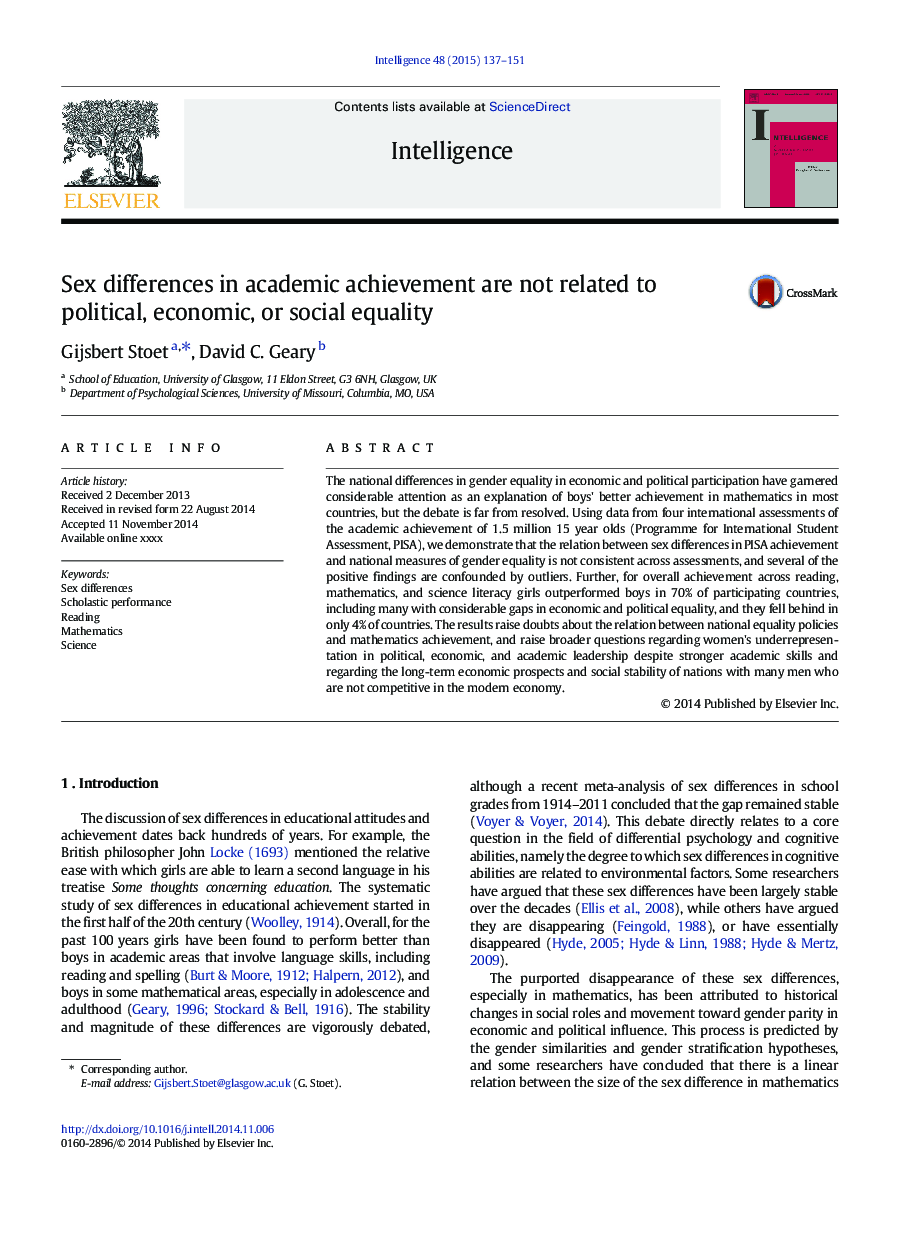| Article ID | Journal | Published Year | Pages | File Type |
|---|---|---|---|---|
| 7294172 | Intelligence | 2015 | 15 Pages |
Abstract
The national differences in gender equality in economic and political participation have garnered considerable attention as an explanation of boys' better achievement in mathematics in most countries, but the debate is far from resolved. Using data from four international assessments of the academic achievement of 1.5 million 15Â year olds (Programme for International Student Assessment, PISA), we demonstrate that the relation between sex differences in PISA achievement and national measures of gender equality is not consistent across assessments, and several of the positive findings are confounded by outliers. Further, for overall achievement across reading, mathematics, and science literacy girls outperformed boys in 70% of participating countries, including many with considerable gaps in economic and political equality, and they fell behind in only 4% of countries. The results raise doubts about the relation between national equality policies and mathematics achievement, and raise broader questions regarding women's underrepresentation in political, economic, and academic leadership despite stronger academic skills and regarding the long-term economic prospects and social stability of nations with many men who are not competitive in the modern economy.
Related Topics
Social Sciences and Humanities
Psychology
Experimental and Cognitive Psychology
Authors
Gijsbert Stoet, David C. Geary,
